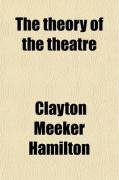on the trail of stevenson

Purchase of this book includes free trial access to www.million-books.com where you can read more than a million books for free. This is an OCR edition with typos. Excerpt from book: CHAPTER THREE ENGLAND Stevenson's attitude toward England was noticeably different from his attitude toward any of the other countries that he lived in. It was the only land in which he felt himself a foreigner. He was always easily at home in France; he made himself quite readily at home in the United States; and, even in the South Sea Islands, he found no difficulty in accustoming himself to conditions of life as far removed as possible from those of his ancestral Scotland. But in England he was never easily and utterly at home. He was living in a land of strangers. Neither the English country nor the English people seemed to belong to him, like the French, the Californian, the Samoan. He was never so consciously and so emphatically Scottish as when he had crossed the border into that very different country that lay only fifty miles to the southward of his native Edinburgh. He felt no antipathy to Englandmerely a smiling consciousness of his inability to appreciate and to assimilate it. Other countries he could call his own, but England remained somehow a country of the other people. He never became a part of it; and, in consequence, it never became a part of him. A nameless friend of mine, when he was only twenty- one, wrote (with what seems to me a fine flourish) in hisdiary: "Naples is a part of me now; and I am bigger by a city." Louis might have written thus of Paris or of San Francisco. Strangely enough he could never have written in similar terms of London. His sense of England as a foreign country may be traced back to his childhood. In the autumn of 1863, he passed a single term at a boarding-school kept by a certain Mr. Wyatt in Spring Grove, Isleworth, near London. In after years, his only recollection of this experience was a sense of the essential differe...
Info about the book
Author:
Series:
Unknown
ISBN:
0806132531
Rating:
4.5/5 (4)Your rating:
0/5
Languge:
English
Users who have this book
Users who want this book
What readers are saying
What do you think? Write your own comment on this book!
write a commentif you like on the trail of stevenson try:
Do you want to exchange books? It’s EASY!
Get registered and find other users who want to give their favourite books to good hands!







